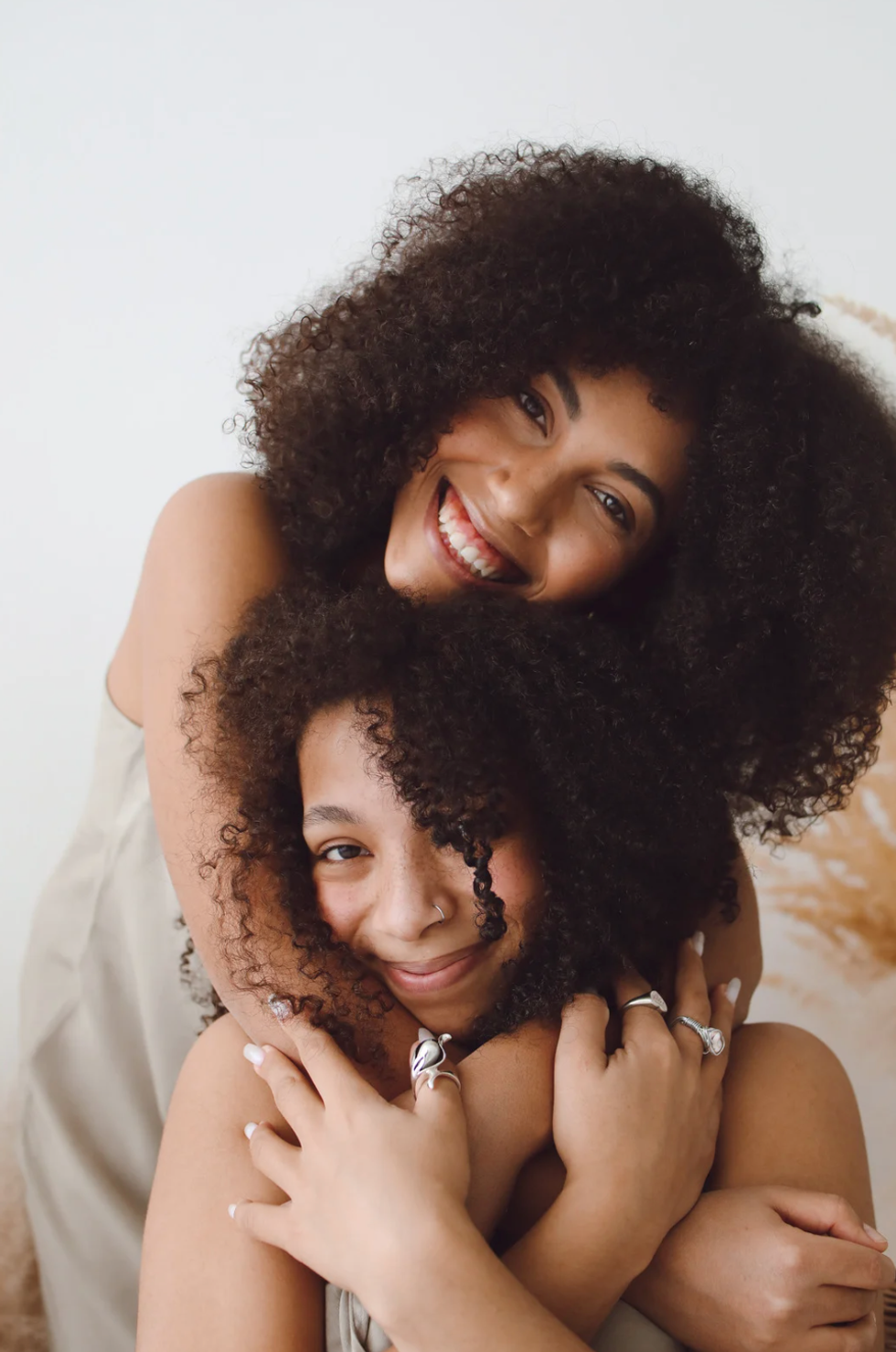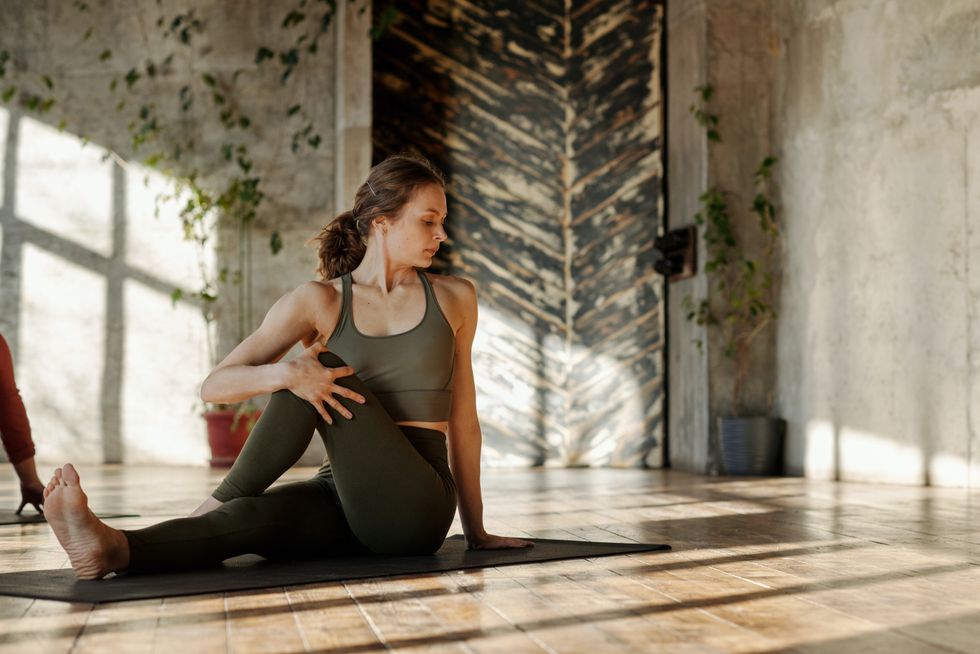Hear from five women who live with PCOS.
What Is PCOS & How Does It Look In Your Early 20’s?

Olivia Taylor (she/her) is a writer, self-proclaimed reality TV buff and uses "Real Housewives" references unironically. Her camera roll is filled with Twitter screenshots and she will definitely talk your ear off for as long as you will let her. Find more of her pop culture ramblings just about anywhere on the internet.
Your early 20s are supposed to be a time of freedom and discovery. You’re meant to explore the world, find your passion, deepen relationships and embrace transformative experiences – but not everyone gets that luxury. In fact, nearly 6 million women in the United States (including far too many young women) deal with PCOS (Polycystic Ovary Syndrome), a hormonal disorder with symptoms ranging from infertility to unbearably painful periods, says Endocrine Society.
If this is new information to you, let me break it down for you. In simple terms, PCOS is the most common hormonal disorder among women of reproductive age, but many women don't even know they have it. Unfortunately, too many women aren’t diagnosed with PCOS, despite having the condition, because many doctors still view the symptoms as “just something women have to deal with.” This subsequently causes some women to spend years advocating for themselves until any testing is done — which is absolutely ridiculous, BTW.
While the exact causes of the disorder are still unknown, there are some uncommon discrepancies that may correlate with the syndrome. For instance, Androgen excess (male hormone excess), is “seen in 60-80% of girls and women with PCOS, [and] is a key problem in the disorder and likely comes from ovaries in most women,” Endocrine Society states. Insulin resistance or elevated insulin levels, along with “abnormalities in how the brain or pituitary gland communicate with the ovaries may also lead to androgen overproduction. Other hormones from the ovary or fat tissue may also be involved.”

It’s believed that PCOS is generally inherited, but environmental factors (like low birth weight, rapid weight gain in infancy, early pubic hair and puberty development, childhood obesity, excess adult weight, unhealthy lifestyle, etc.) also play a role in the development of PCOS.
As we mentioned before, many women are only diagnosed after years of self-advocacy, and after consistently experiencing infrequent or painful periods, difficulty getting pregnant, ovarian cysts, abnormal weight gain, and hair loss (or excessive hair growth). You’d think this condition would be widely talked about, but truth be told more women have been diagnosed recently thanks to the advent of TikTok.
Through the app, hundreds of women recount their experiences with PCOS, some even documenting their journey pre and post diagnosis. This has led to more women seeking medical attention for traits that were once considered “not a big deal,” and having the information to move forward with their lives.
I interviewed five women in their early 20s on how this condition has affected their lives, and how they move forward with this newfound information.

Photo by Cliff Booth / PEXELS
Andie, 22: “I’ve dealt with painful and infrequent periods my whole life. Of course, doctors always told me it was ‘normal’ because my tests were ‘normal,’ but I always knew something wasn’t right. I actually first heard of PCOS through TikTok, and I was like, ‘this sounds a lot like me.’ Since then I've been super proactive in my health. To get diagnosed I had to go to several doctors which wasn’t great, but my new OBGYN took me seriously enough to do more intense testing. As I kinda expected, I was diagnosed with PCOS shortly after, but since not much is known about it I started doing a ton of research on my own. I take lots of supplements along with birth control, and have a pretty clean diet with regular exercise. My periods are a bit better now, but honestly it just feels good knowing that my gut was right all along.”
Cameron, 23: “I was diagnosed with PCOS when I was just shy of 19, which is pretty lucky considering most women don’t get diagnosed until later. My primary care doctor and OBGYN both believed me at face value, which made the process much easier than other women I have heard of. TikTok has helped me a lot to listen to my body and use more holistic methods to heal myself, most of which have worked, at least in my opinion. Honestly it could just be a placebo effect but I don’t care. I want to have kids one day, so it’s definitely a bit nerve wracking knowing I could have infertility. My doctors said I’m OK right now, but it’s still something extra I have to think about that my friends don’t.”

Photo by KoolShooters / PEXELS
Lucy, 21: “I was literally just diagnosed two months ago, so I’m still learning a lot about it and how I can try to actually ‘cure’ myself. I mean – obviously I’d rather not have PCOS, but what am I going to do?! I’m currently taking fish oil, magnesium and probiotics, all of which I’ve heard good things about from other girls with PCOS. One of my best friends in college also has PCOS, so it’s nice to have someone else to talk to who ‘gets it.’ I would definitely recommend for other women who suffer from PCOS to find someone else with it to talk to, it’s been super helpful for me.”
Jenna, 20: “I’ve had periods of excessive weight gain and weight loss throughout my life, but I just thought it was because of exercise – I never thought it could be a sign of something bigger. I recently moved for school and started seeing a new doctor, because I kept gaining weight even though I ate a super clean diet and exercised a lot. He decided to send me for some bloodwork and other tests just to see if anything was wrong, and that’s how I found out I had PCOS – which was definitely surprising for me since I never had inconsistent periods. The diagnosis has allowed me to find new ways to workout so I can actually lose the weight I want to. It’s not as much as I’d like, but I’ve lost 15 lbs in the last four months!”

Photo by Rachel Claire / PEXELS
Lydia, 22: “Obviously, it’s never fun to cancel on your friends because you’ve got excruciating period pain, which is why I went to the doctor in the first place. After months of this stabbing-like pain the doctors finally diagnosed me with PCOS. It hasn’t changed a lot for me, if I’m being honest, but at the very least I am taking some medication so my periods aren’t nearly as painful anymore.”
It’s simultaneously wonderful and unfortunate that more young women are advocating for themselves. Wonderful that they find the power to advocate, but unfortunate that they have to. We hope these stories encourage you to take authority over your own health and wellbeing, and to be confident in your knowledge of yourself over someone else’s perception of you. Only you know how you feel, so advocate for that!
Take charge of your health with tips and tricks from Brit + Co.
Header image via Antoni Shkraba / PEXELS



















